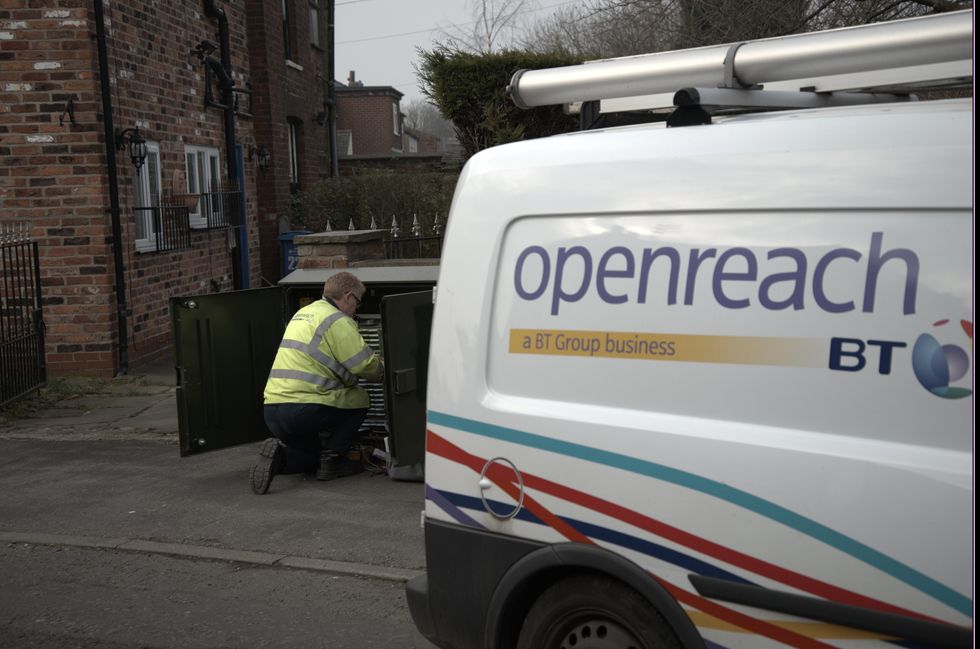Brace yourself — monthly broadband bills are set to increase from today as major UK internet suppliers implement their annual price hikes. Some of the most popular broadband providers — BT, Sky, TalkTalk, Plusnet, EE, Vodafone, and Virgin Media — have confirmed plans to increase monthly bills for existing subscribers in April.
How much extra will you have to pay? That depends on the broadband supplier that you use, and when you signed up for the contract. Yes, the annual round of price hikes is more complicated than usual, thanks to the introduction of new rules from Ofcom governing how UK broadband providers can increase bills mid-contract.
Some customers will see monthly costs rise in line with inflation, while others could face fixed hikes.
For those on the older, inflation-linked contracts, broadband prices will rise by an average of £21.99 annually, with some newer plans seeing increases of up to £42 a year, according to analysis by Uswitch.
If you're still within the minimum contract term, there's not much you can do to swerve these price rises. Some broadband providers — Vodafone and EE, to name a couple — contribute between £100 - £300 towards early termination fees when you agree to switch from your current contract.
- Start your switch to Vodafone, and claim up to £100 to cover early termination fees
- Start your switch to EE, and claim up to £300 to cover early termination fees
If you want to switch to a broadband supplier that doesn't offer this type of incentive, you'll be stuck with paying the cancellation fee (this is usually the remaining balance of the broadband contract) yourself. In other words, it's probably best to sit tight and wait until the end of your contract term, which is usually between 12- to 24-months.
According to Ofcom, some 7.4 million UK broadband customers are currently out of contract and could switch to a new deal with no repercussions. Broadband suppliers typically reserve their best prices for new customers, so moving between brands could unlock lower monthly bills, faster speeds, or if you're lucky — both.
Switching broadband can save £184 every year, research from Broadband Genie suggests.
Unsure whether your broadband price increase will be under the old inflation-based system, or the new rules from Ofcom? If you signed up for your broadband contract on or before the below cut-off dates, your April price rise will still be linked to a measure of inflation:
- BT | April 10, 2024
- EE | April 10, 2024
- Plusnet | April 10, 2024
- Vodafone | July 2, 2024
- TalkTalk | August 12, 2024
- Three Broadband | September 8, 2024
- Virgin Media | January 9, 2025
The incoming annual price hikes from the biggest broadband providers in the UK are as follows:
- BT Broadband | £3 p/month extra for newer contracts; 6.4% increase for older contracts
- EE Broadband | £3 p/month extra for newer contracts; 6.4% increase for older contracts
- Plusnet Broadband | £3 p/month extra for newer contracts; 6.4% increase for older contracts
- Virgin Media | £3.50 p/month extra for newer contracts; 7.5% increase for older contracts
- TalkTalk Broadband | £3 p/month extra for newer contracts; 6.2% increase for older contracts
- Vodafone Broadband | £3 p/month extra for newer contracts;6.4% increase for older contracts
- Three Broadband | £2 p/month extra for newer contracts; 4.5% increase for older contracts
- Sky | 6.2% increase for all broadband contracts
According to Broadband Genie, the average UK household spends £30.84 each month on broadband. If you're set for a 6.4% increase, that results in an extra £1.92 every month — or £23 over the course of the next year.
Unlike all of the other providers listed above, Sky allows its broadband subscribers to walk away from thier contract penalty-free within 30 days of being notified about the price hike.
Sky full-fibre broadband starts from just £24
Sky has slashed the cost of its Full Fibre 150 plan to just £24 — one of its lowest prices yet. It's also waived the upfront fees. Since Sky relies on the Openreach network, anyone who has used BT, EE, or Plusnet at their address will be able to switch with no issue
Sky Full Fibre 150
Anyone signed-up for a social tariff — a low-cost broadband deal specifically aimed at people receiving benefits like Universal Credit, Pension Credit, Income Support, Jobseeker’s Allowance, or others — will not see the above price rises applied to their monthly bills.
As well as being exempt from mid-contract price hikes, social tariffs don't include exit fees or penalties for early cancellation, so subscribers can leave if their circumstances change with little notice. Several major UK broadband providers offer social tariffs, including BT (Home Essentials), Virgin Media (Essential Broadband), Sky (Sky Basics), and Vodafone (Essential Broadband). These plans rarely enjoy the same advertising budget as the standard broadband plans, so eligible customers will need to check directly with providers to switch.
If your broadband bills are about to increase — and you're not happy about it, you have a few options: renegotiate with their provider, switch to a new contract, or jump to a different network.

Step 1: Check Your Contract Status
Before making a move, check how long is left on your existing contract. Leaving early could mean paying hefty exit fees, but if you're out of contract, you have leverage to negotiate.
Step 2: Haggle with Your Provider
Call your broadband provider and ask for a better deal. If they resist, mention competitor offers — most broadband providers would rather lower your price than lose you completely. It's always best to speak to someone on the phone and calmly explain your case.
Martin Lewis advises that most people should not be paying more than £30 per month unless they require high-speed connections, yet many are overpaying between £40 to £60.
Step 3: Switch for a Better Deal
If your provider won’t budge, switching is often the best way to save.
Data shows customers who switch when their contracts end or if they are already out of contract can access introductory offers that may be as much as 90% cheaper than standard tariffs. Research indicates that long-standing customers are often overpaying — those who have been with a provider for several years are more than three times as likely to pay over £100 monthly compared to new customers.
Yes, loyalty to a single provider often almost never results in a better deal.
Since almost all providers increase prices annually, customers who remain with the same provider for extended periods frequently find themselves on higher tariffs without receiving any loyalty benefits. This trend highlights the importance of regularly reviewing contracts and exploring alternatives.
Most UK broadband services — including BT, Sky, TalkTalk, Plusnet, and Vodafone — run on the BT Openreach network, meaning you can switch between these brands at the same address without changing cables or losing download speeds.
Since Virgin Media operates on its own cable network, you'll need to use its postcode checker to see whether your address is one of the 16 million properties connected to its full-fibre broadband. Likewise, smaller alternative full-fibre providers like Hyperoptic, Community Fibre, and Gigaclear (Alt-Nets) also run independent fibre networks, offering gigabit speeds at low prices — but with (very) limited availability.
Thankfully, the new One Touch Switch system, launched in September 2024, has been designed to simplify the process of switching broadband providers. Under this system, customers only need to contact their new provider, which will handle the entire switching process, including liaising with the existing provider. If that sounds familiar, it's likely because the process of switching between broadband brands running on BT-owned Openreach cables has been like this for years, but it was moving between different full-fibre networks, from Openreach to Virgin Media for example, where customers would need to contact multiple customer service teams and organise the switchover date themselves.
Want the best broadband deal? Compare offers, switch smartly, and never overpay again.

 By GB News (World News) | Created at 2025-04-01 19:06:04 | Updated at 2025-04-02 22:46:59
1 day ago
By GB News (World News) | Created at 2025-04-01 19:06:04 | Updated at 2025-04-02 22:46:59
1 day ago









